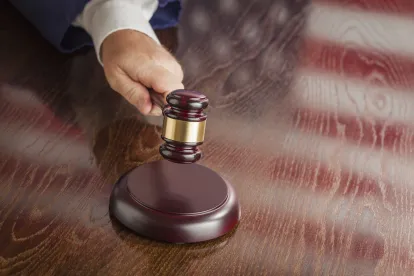In 2016, a married gay couple in Canada became parents of twins using a surrogate mother. One father is a U.S. citizen, the other an Israeli citizen. The two fathers made a decision to contribute one embryo each to the surrogate mother so the twins would be biologically related to each of them. However, that turned out to be a determinative factor when the parents went to the U.S. Consulate in Toronto to register the twins for U.S. citizenship. Only one of the twins, Aidan, who was biologically related to his U.S. citizen father, was granted a U.S. passport. The family was devastated by this decision. When the Dvash-Banks family decided to move to California, the other twin, Ethan, had to enter as a visitor on a B visa. His B visa eventually expired, leaving him “undocumented.”
With regard to children born in wedlock, section 301 of the Immigration and Nationality Act states that a “child born outside of the United States . . . acquires citizenship at birth if at the time of birth one parent is a foreign national and the other parent is a U.S. citizen; and the U.S. citizen parent was physically present in the United States for at least 5 years, including at least 2 years after 14 years of age.” Section 309, which applies to children born out of wedlock, requires, among other things, that “blood relationship between the child and the father is established by clear and convincing evidence.” The State Department, in its published policy, apparently reads the “blood relationship” clause into section 301 and would not budge on that policy for the Dvash-Bankses.
The Dvash-Bankses challenged the Department of State’s (DOS) decision with regard to Ethan in the U.S. District Court, Central District of California. In response to a motion for summary judgement, Judge John F. Walter declared that Ethan was a U.S. citizen and ordered DOS to issue him a U.S. passport as soon as possible. The order applied only to Ethan and did not prevent DOS from applying its “blood relationship” policy to other families. In post-summary judgement proceedings, the Dvash-Bankses argued, “The State Department’s refusal to approve [Ethan’s] applications . . . and its persistence in litigating this action full-bore to summary judgement, was manifestly unreasonable and not substantially justified.” The Judge awarded $1.3 in attorney’s fees and costs to the couple.
Ethan’s fathers believe that a straight couple who had used assistive reproductive technology would never have been asked to submit to a DNA test, as they were required to do by DOS. In a similar case, a lesbian couple of one U.S. citizen and one Italian citizen whose children were born in London brought a claim in the federal district court in D.C. – using the same lawyers who represented the Dvash-Banks family.
This post was written by Sarah Barnhill.



 />i
/>i

